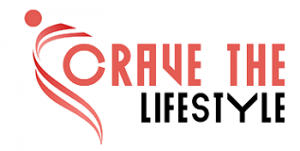Having the right payroll software in place can be a big time saver for your company. It can help automate many tasks that used to take up the bulk of your HR team’s time.
It also reduces the risk of errors, ensuring your staffers are paid on time and receives the compensation they deserve. This saves your employees’ time and makes them happier.
Ease of Use
Keeping up with payroll processing can take much work for a business. This is because it involves various tasks, including employee onboarding, time-off payouts, and tax calculations. Payroll software enables HRs to streamline these tasks, freeing them up for more critical projects.
Moreover, it saves HRs and short business owners time and money. Unlike manual payroll, payroll technology eliminates the need for error-prone spreadsheets or outdated systems that can waste valuable resources.
Additionally, it ensures that all employees get paid on time. This reduces employee dissatisfaction and can prevent a company from financial trouble.
It also ensures that taxes are calculated correctly and filed on time. Handling these processes by payroll software can help businesses comply with tax regulations. In addition, it can save business owners a lot of time and money in the long run, as it can automate filing and pay for their employees’ payroll taxes.
Many payroll solutions, like ADP, include features that make it easy for administrators to configure the system without coding or calling on IT professionals. These tools typically have best practices and recommended formulas that guide nontechnical staff through simple steps to set up the method according to their needs.
Depending on the business’s specific needs, these solutions can be cloud-based or on-premise. Regardless, they should provide a user-friendly interface accessible from multiple devices.
Another feature to consider is supporting. If a business owner encounters an error, they must have access to expert help. This can save them a lot of time, and choosing a payroll solution that offers free or low-cost customer support services is a good idea.
Lastly, look for a payroll solution integrated with other core business systems. This can deepen business insights and make it easier for executives to develop budgets and forecasts. It can also improve reporting and simplify talent and workplace management. In addition, it can enhance security by allowing organizations to control access to sensitive information.
Accuracy
Accuracy in payroll processing is a massive concern for HR managers. Payroll errors can lead to dissatisfaction, morale decline, and employee turnover. Besides, they can put your business in legal jeopardy.
The first step is ensuring your payroll inputs are accurate and adhere to company policy. This can be done using a software solution that captures and processes all data necessary to process the payroll accurately.
Once this is done, it’s time to start calculating the payroll. This can be time-consuming and require a lot of attention to detail.
This can take up much of your employee’s and managers’ time, so you must have a system to streamline this process. With an automated system, you can eliminate human error from your payroll processes and save time for more critical tasks in your business.
Another way to reduce the risk of payroll errors is to make it easier for employees to verify their information. When your employees can access their personal and time-related information digitally, they have more confidence in the accuracy of their data.
If you use a software solution to automate your payroll, you can ensure that you have a reliable way to track and record employee hours and salaries. This can help you avoid paying workers for their overtime when they worked less than 40 hours in a workweek or paying an employee for an extra day of vacation when they didn’t use it.
A good payroll solution will also allow you to automatically calculate leave accruals such as annual, sick, and long service leaves. This makes it easy for employees to apply for and approve leave online, with historical records at their fingertips.
Another essential thing to remember is that it’s best to have your payroll and wage-related records stored in a secure cloud or hardcopy format for three years. Keeping these records up-to-date and compliant will help you avoid tax penalties, government audits, and more. If you have any questions about your record-keeping, it’s best to consult an attorney or accountant who knows your industry and local laws.
Tax Compliance
Payroll and tax compliance are among the most complex aspects of being an employer. The IRS has many requirements that must be followed, and these laws are constantly changing. These changes can be complex for even experienced payroll and HR professionals.
Thankfully, some solutions can help make complying with tax laws and regulations easier. These solutions ensure that your payroll is done accurately and on time, which will help reduce the risk of fines or penalties.
For example, an HRIS can automatically update the information, so employees don’t have to involve HR staff when they want to change their bank account or add dependents. It can also keep track of the different kinds of payroll taxes, so you know when to pay them.
These systems can also help you calculate sales tax and any VAT (value-added taxes) required for specific products or services. This is important for companies that sell their goods or services in multiple locations because sales tax laws can differ from site to place.
Another advantage of a software-based solution is that it can automatically update to reflect new taxes and legislation. This can be especially useful for global businesses with employees in multiple countries.
Lastly, the software will be able to alert you of deadlines that need to be met so that you can keep up with the latest taxes and regulations. This will help you to avoid costly fines or penalties from the IRS.
When you’re looking for a solution to manage your payroll and tax compliance, it’s essential to find one that is easy to use and can adapt to the needs of your business. Cloud-based systems typically come preconfigured, but you can easily customize them as your business grows or your employee roles and payment structures change.
The IRS seeks to help taxpayers comply with their tax obligations voluntarily and on time, but everyone understands and knows the laws differently. The best way to ensure you’re not inadvertently violating any laws is to train your employees on payroll and tax issues properly.
Reporting
When you own or operate a business, payroll is essential to operations and financial planning. It ensures that your employees are paid accurately and on time. It also helps reduce employee turnover and improve employee morale by giving them the compensation they deserve.
Payroll software automates all the tasks required to accurately track and pay your employees based on their hours and wages. It also ensures compliance with both state and federal tax laws. It can help you avoid legal issues and employee complaints by automatically calculating the correct payment amount for each pay period.
A sound payroll software system should be able to create customizable reports that provide you with crucial information about your company. These reports should be easy to access and set up so that you can make informed decisions about your workforce.
It would be best to choose a solution that offers reporting as a stand-alone feature or as an integrated part of a larger HCM platform. It should integrate natively with other core business systems, such as time and labor, compensation, financial management, and absence management.
There are many different options for payroll software, so you’ll need to find the right fit for your business. Some possibilities are budget-friendly, while others can be expensive if your team grows too large for them to support.
Some solutions offer a fixed price, while others may have a per-employee or a monthly fee structure. A monthly fee may work best for small businesses with less than ten employees, but a fixed pricing plan is more likely cost-effective for large companies.
If you are a business that uses an outside provider for its payroll, verify that the software has various features, including multiple payment methods, garnishment payments, paid time-off management, workers’ compensation administration, unemployment insurance, and detailed paycheck records. It would be best to consider whether the solution can be easily configured for your current and future needs.
Choosing the right software can save your company time, money, and a lot of stress. By avoiding errors, you can increase employee morale and avoid legal issues. Plus, you can streamline your workflows and keep track of critical business operations more efficiently.


 The Science Supporting Natural Wellness from Green Kratom
The Science Supporting Natural Wellness from Green Kratom  Myths About CBD That Need to Be Debunked
Myths About CBD That Need to Be Debunked  How to protect yourself when using a deep web search engine?
How to protect yourself when using a deep web search engine?  Are CBD Gummies for Anxiety a Miracle Cure?
Are CBD Gummies for Anxiety a Miracle Cure?  Liquid Vaults: Ether.fi unlocks automated DeFi earnings
Liquid Vaults: Ether.fi unlocks automated DeFi earnings  How to share legal advice securely using self-destructing notes?
How to share legal advice securely using self-destructing notes?  Maximize your wins: Top Strategies for Football Betting in Online Casinos
Maximize your wins: Top Strategies for Football Betting in Online Casinos  Five Businesses You Could Start Today for Additional Income
Five Businesses You Could Start Today for Additional Income  What Rug Shoppers Should Look For While Finding Vintage Rugs!
What Rug Shoppers Should Look For While Finding Vintage Rugs! 